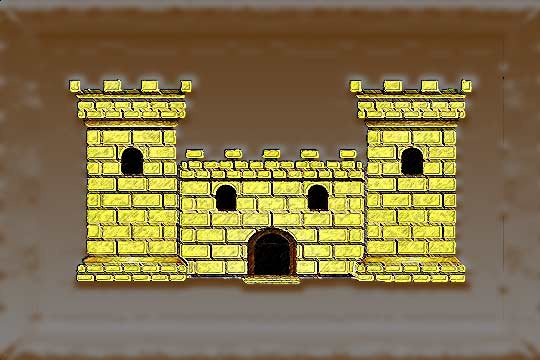Lachania, Rhodes, Dodecanese,South Aegean
Tower of Agios Georgios of Tha
| Location: |
| On a low hill NE of the village Lachania of southern Rhodes, near the church of Agios Georgios of Tha. |
| Region > Prefecture: |  |
| South Aegean Dodecanese | |
| Municipality > Town: | |
| City of Rhodes • Lachania | |
| Altitude: | |
|
Elevation ≈ 88 m (Relative Height≈20 m) |
| Time of Construction | Origin | |
| 1477 | IOANNITE |
|
| Castle Type | Condition | |
| Ruined Tower |
Few Remains
|
Ruins of a rectangular late-medieval residential tower (maybe in times of danger also used as a watchtower) of the Knights Hospitallers‘ period next to Ágios Geórgios Monastery (vicinity of Lachanía), south-eastern part of Rhodes.
Castle Description
Text: Dr. Michael Losse – Singen (Hohentwiel), Germany (16.12.2020)General description
The village of Lachanía is located in the SE of the island of Rhodes, less than 2 km from the coast. Several researchers and authors mentioned a watchtower near the place, but there are contradictions in the localization. Thus the German traveller, artist and researcher Albert Berg (1862, p. 153) reported: “Half an hour further on, on a hill that dominates the sea and the surrounding area, a beautiful watchtower from the period oft he Knights of St John's, not far from it a small monastery”.
The Italian scholar Giuseppe Gerola (1914, p. 353) described a rectangular watchtower accidentally near the church "S. Irene" (Ajía Iríni), which stands on the access road just before the village; he mentioned the tower’s well-bricked outer shell had already been a victim of stone robbery; inside the tower there were still remnants of a barrel vault (Gerola’s photo ibid. still shows several meters high masonry).
Only Peter Lock (2006, p. 385) correctly described the location of the tower next to the monastery of Ajos Jéorjios, 2 km north-northeast of Lachana, on the right of the old main road from Lachanía to Jennádi.
To the north of the monastery rise the remains of the once 13✖8 m large two-storeyed tower on the edge of a parallel terrain stage. Its ground floor walls were about 1.5 m thick. The tower was built according to Stephen C. Spiteri (2001, p. 153) in 1477. Its walls were apparently carved in the lower half (so-called Talus) and optically divided from the upper part by a cordon (ibid.).
Today, apart from small remnants of the filling masonry and fallen wall parts, there is left only stones of the tower all around. From the possible enceinte mentioned by Lock (2006), no parts can be recognized under collapse masonry and vegetation.
History of the castle
The tower was built during the Knights of St. John‘s (Hospitaller Knights‘) rule in the 15th or 16th century (according to Spiteri 2001, in 1477). Details and exact dates are not known.
Other Info
SourcesGerola, Giuseppe: I monumenti medioevali delle 13 Sporadi. In: Annuario Scuola Arch. Atene I, 1914, pp. 319-356. Lock, Peter: Freestanding towers in the countryside of Rhodes. In: Elizabeth Jeffreys (Ed.): Byzantine Style, Religion and Civilization. In honour of Sir Steven Runciman. Cambridge 2006, pp. 374-393.
Losse, Michael: Wacht- und Wohntürme aus der Zeit des Johanniter-Ordens (1307-1522) auf der Ägäis-Insel Rhódos (Griechenland). In: Burgen und Schlösser 4, 2009, pp. 245-261.
Losse, Michael: Die Burgen und Festungen des Johanniter-Ritterordens auf Rhódos und in der Ägäis (Griechenland) 1307-1522. (Publisher: Nünnerich-Asmus Verlag) Mainz 2017.
Losse, Michael: Die (Küsten-)Wachttürme des Johanniter-Ritterordens auf der Insel Rhódos (Dodekanes, Griechenland) bis 1522 – Zum aktuellen Forschungsstand. In: fortifikation. Fachblatt des Studienkreises für Internationales Festungs-, Militär- und Schutzbauwesen e.V. (INTERFEST), Vol. 34, 2020, pp. 59-90.
Spiteri, Stephen C.: Fortresses of the Knights. Malta 2001.
| First entry in Kastrologos: | June 2021 |
Sources
- Article and photographs 1,2 (2007) by Dr. Michael Losse, M.A.
- Website ΟΔΥΣΣΕΥΣ - Greek Ministry of Culture, - Πύργος Λαχανιάς
|
|
| Access |
|---|
| Entrance: |
| Free access |







